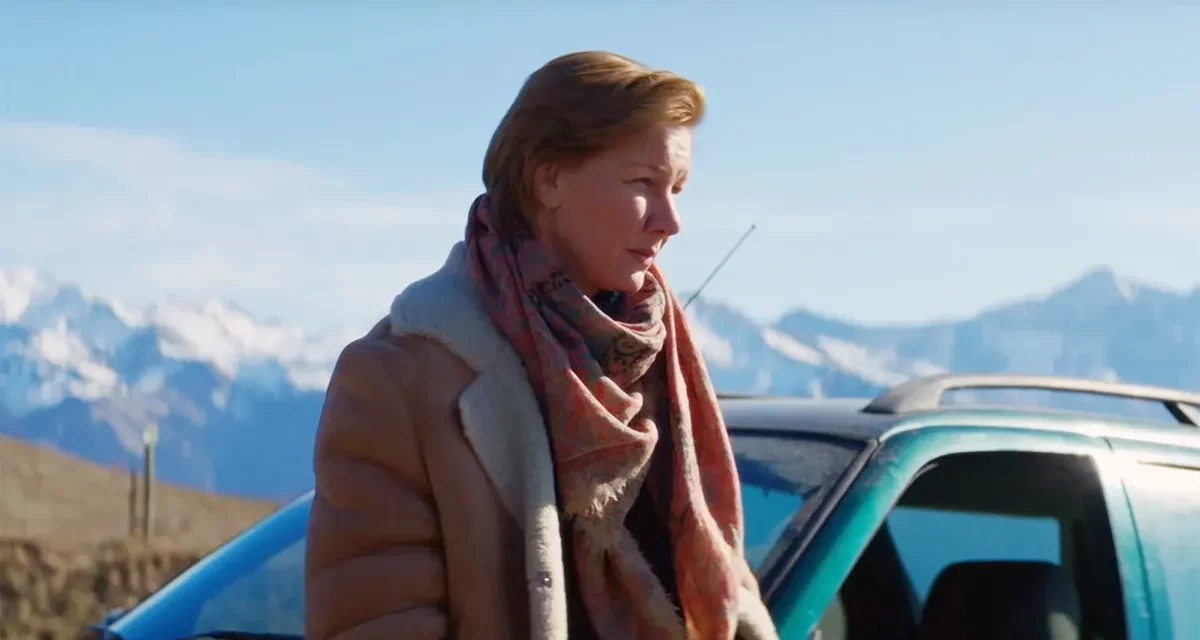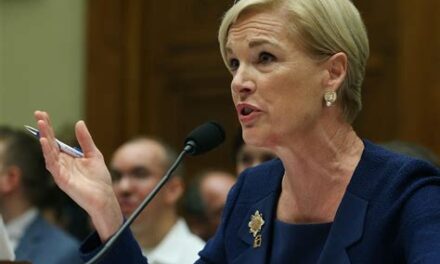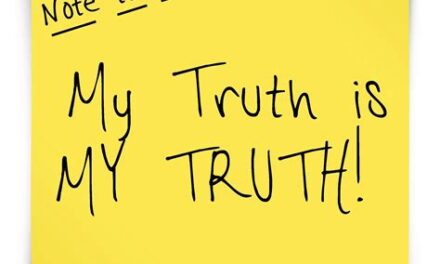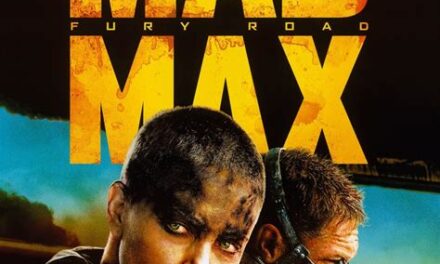Anatomy of a Fall, a current Academy Awards nominee for Best Picture, fits into a small category of courtroom dramas that places the viewers in the place of the jury. Like Otto Preminger’s Anatomy of a Murder (1959) (to which I suspect it owes debt greater than its similar title), the audience never actually sees the crime take place.
All that one can know is that a shocking death occurred; that the forensic pathologists, police, and court find it suspicious enough to bring an indictment; and that, quite apart from the verdict in the story, we are left to weigh the evidence and decide whether the protagonist is guilty or innocent—keeping in mind that that question has much more to it than a formal decision regarding what someone did to someone else in one horrific moment.
The story begins prosaically enough. A family consisting of wife and mother Sandra Voyer (Sandra Hüller), her son Daniel (Milo Machado Graner), and husband Samuel Maleski (Samuel Thais) live in a chalet in the French Alps near Grenoble. She is a successful novelist who has allowed a young literature student, Zoé Solidor (Camille Rutherford), to interview her, while Samuel, unseen at this point, works remodeling the attic to an instrumental of the song P.I.M.P. (which, happily, I had never heard prior to seeing the film).
The interview is peculiar since Sandra seems more interested in asking questions of the student instead of the other way around. Even more bizarre, the music from the attic grows louder and louder until it reaches such an unbearable volume that Sandra must terminate the interview.
After Zoé leaves, Sandra rushes upstairs to talk to Samuel, a conversation that is never shown, while Daniel, wearing dark wrap-around sunglasses, takes Snoop, their border collie, for a walk in the snow. As the film later reveals, he is partially blind from an accident when he was younger, but he reveals himself determined to walk with only his dog as companion; in addition, he regularly practices the piano, learning a Chopin prelude among other pieces. When he returns to the chalet from his walk, he finds Samuel lying face up in the snow, clearly dead, bloodstains darkening the snow around his head.
What happened? Sandra’s lawyer Vincent (Swann Arlaud), whose interest in her appears more than professional, tells her that although the pathologist’s report may have been inconclusive, “an accidental fall is going to be hard for us to defend.” Her unequivocal response that she did not kill Samuel carries conviction, but as the plot unfolds our sense of unease about the matter grows. Is she simply a master at hiding her nature or, at least, an aspect of it that led to violence? Did her husband really lean out of a window for no clear reason and lose his balance to such a degree that he tumbled over the more than waist-high sill? Was he suicidal? To the police and the grand jury (or whatever mechanism the French have in criminal cases), the mysteries surrounding the death must be probed. They rule for Sandra’s indictment, and a few months later the trial begins.
Successful defense and prosecution depend on the marshalling of evidence and, conversely, the discrediting of the opposing case. Did Sandra have motive? Opportunity? As to the latter, the jury learns that she was the only other person there. Did Samuel remain in the attic while she worked in the bedroom a floor below (more or less, the third floor) as she claims? Or did he come to the bedroom where they argued before she pushed him over the rail of the balcony? Prosecution and defense trot in their separate teams to show how death might have occurred either way. Whom do we believe?
More disturbing—and here Anatomy of a Fall amplifies a theme increasingly obvious—the marriage was anything but happy. Sandra is German; Samuel is French. For years, they lived in London where he taught successfully. Their differing nationalities achieved a rapprochement in the neutral English they spoke. But his desire to write a novel, led him to quit teaching and move the family to Grenoble, where unaccountably his progress as a writer stalled while her star has risen spectacularly. She is unhappy there, and her preference for speaking English instead of French epitomizes much of what’s wrong with them.
Moreover, as the prosecution reveals, she has had at least one affair, with a woman, which gives a different cast to the interview with Zoé earlier in the film. Yet Sandra protests that even if the marriage had lost its spark, Samuel and she remained cordial, and that he knew about her brief affair. But that cordiality is dramatically called into question. Curiously, Samuel had the habit of recording conversations with Sandra, and one example exists that reveals a violent argument, each blaming the other for the unhappiness that has destroyed their life and, in Samuel’s case, his sense of purpose. The scene has a pointed irony because we see the argument that the court can only hear, but whenever a slap occurs, the scene switches to the courtroom, and we only hear the slap. Whether heard or seen, this much becomes clear: the court may find Sandra not guilty; innocence is an entirely different matter.
Her career and his lack of one are not the only point. Daniel’s accident a few years before that handicapped him occurred when a sitter collected him at school; as they crossed a street, he was hit by a motorcycle. Was this Samuel’s fault? Sandra believes he shirked responsibility in not being available to get Daniel, something he vehemently denies. Regardless of how one weighs their arguments, the mutual hatred and the refusal of both parties to shoulder blame emerge as central points of the action, easily as important as the question of whodunnit.
Caught in the middle, Daniel tries to reconcile his feelings of bereavement with his love for a mother who might have committed a murder. His efforts, sometimes producing near certainty and other times increasing his doubts are remarkable and poignant, especially when he poisons his dog Snoop in an attempt to verify a defense Sandra offered in court.
Hüller’s, Theis’, Arlaud’s, and Graner’s performances are unexceptionable, and that applies to the entire cast. The peaks of the French Alps provide stunning natural vistas in sharp contrast to the human ugliness beneath them. The dialogue—and there’s a lot—is as intelligent and believable as the characters and conflict. No wonder director Justine Triet (best director and original screenplay) and co-writer Arthur Harari have garnered nominations along with Hüller (best actress). Anatomy of a Fall stands out as a thoroughly adult film in the true sense of the word: tense, absorbing, achingly human, and worth every minute.














